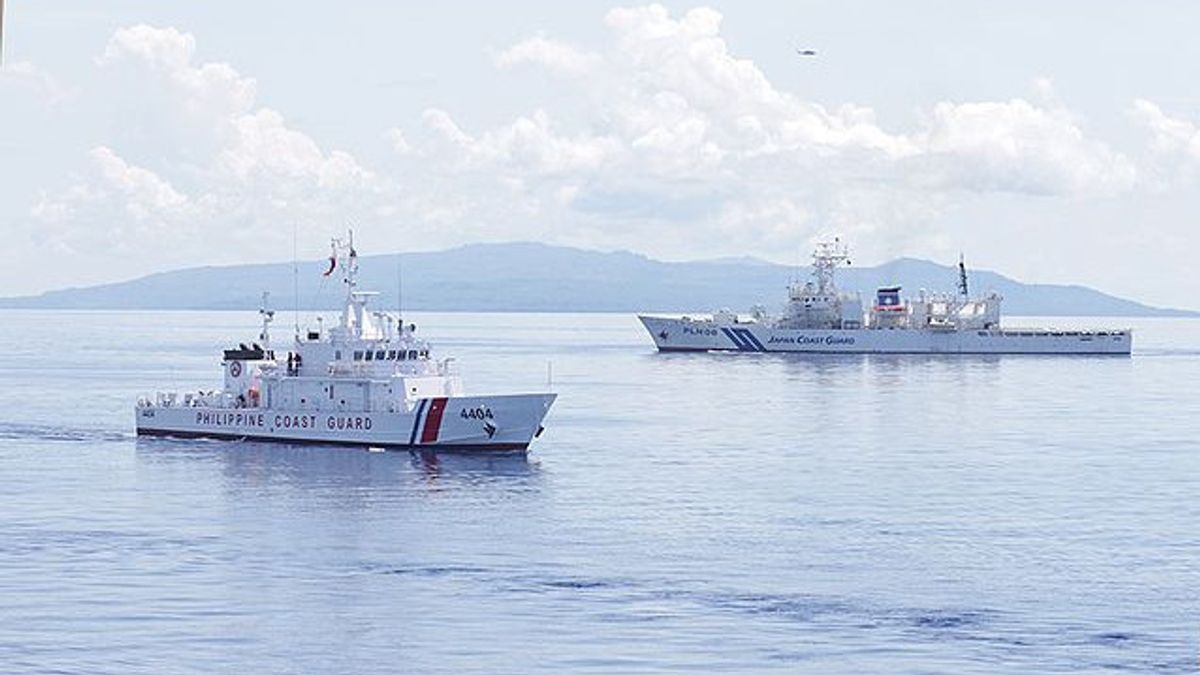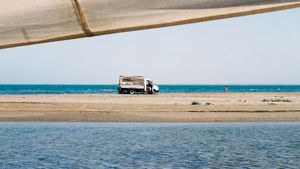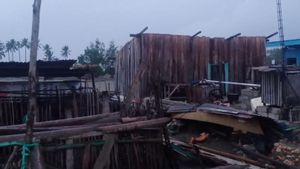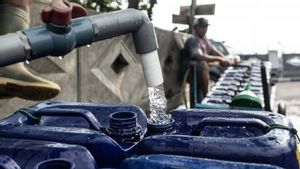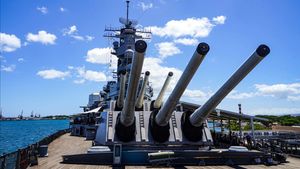JAKARTA - Chinese Foreign Ministry spokesman Mao Ning claims the Philippine coast guard ship entered the waters of the South China Sea which is part of China, causing a collision.
"On August 19, two Philippine coast guard vessels, without permission from the Chinese government, infiltrated waters adjacent to Xianbin Jiao in Nansha Qundao," he told a news conference in Beijing.
The two Philippine ships, said Mao Ning, ignored warnings and bans from China's coast guard and acted maliciously by accidentally crashing into a Chinese coast guard ship carrying out law enforcement operations.
Previously, Chinese coast guard spokesman Geng Yu said the two Philippine coast guard vessels illegally broke through Xianbin Reef waters or Sabina Shoal, called the Sabina Beting in the Spratly Islands, which are part of the disputed waters of the two countries in the South China Sea.
Beting is located about 140 kilometers west of Palawan Island in the Philippines, the nearest main land or about 900 kilometers from China's Hainan Island.
"The responsibility for the collision is entirely in the hands of the Philippines. The Chinese coast guard has taken necessary action in accordance with domestic and international law. The maneuver at the scene is professional, controlled and precise," said Mao Ning.
Mao Ning juga menegaskan kembali Xianbin Jiao adalah bagian dari Nansha Qundao yang diklaim China sebagai miliknya.
"The area has always been a Chinese and uninhabited territory. The Philippines sent a coast guard ship to infiltrate Xianbin Jiao waters in an attempt to send supplies to the Philippine coast guard ship anchored at Xianbin Jiao's (slow sea) lagoon and sought to maintain a long-term presence there," added Mao Ning.
The Philippine action, according to Mao Ning, seriously violates China's sovereignty, violates the Declaration on the Behavior of Parties in the South China Sea (Declaration of Conduct or DOC), and threatens peace and stability in the South China Sea.
"China firmly opposes it and will continue to take firm action to safeguard territorial sovereignty and its maritime rights and interests and uphold DOC dignity," said Mao Ning.
Whereas last July, China and the Philippines reached a temporary agreement regarding access to logistical supplies for Filipino sailors aboard the BRP Sierra Madre warship as a "floating headquarters" that the Philippines deliberately inundated in the Ren'ai Jiao coral reef area or what the Philippines calls "Beting Ayungin".
"China is committed to dealing with maritime disputes with the Philippines through dialogue and consultation. We hope the Philippines will honor its commitments, seriously complying with the understanding and agreement reached with China," added Mao Ning.
He also requested that the Philippines refrain from taking action that could complicate the situation and cooperate with China to control the situation at sea.
Philippines Response
Earlier, Philippine coast guard spokesman Jay Tarriela said the action of the Chinese coast guard ship near Beting Sabina resulted in a collision that caused damage to two Philippine Coast Guard vessels.
Tarriela said the BRP Engano ship suffered a 1.1 meter hole on its right side after a maneuver by a Chinese coast guard at 3.24 a.m. at 43 kilometers southeast of Beting Sabina.
SEE ALSO:
Meanwhile, Philippine coast guard BRP Bagacay was hit twice on both sides by a Chinese coast guard ship at 3.40 a.m. 39 kilometers northwest of Beting Sabina and suffered minor structural damage.
The crew of the Philippine ship were not injured and continued their mission to re-supply the Philippine-guarded islands in the Spratly cluster.
The Chinese government says it has sovereign and jurisdictional rights over islands called "Nanhai Zhudao" in the South China Sea, consisting of Dongsha Qundao, Xisha Qundao, Zhongsha Qundao and Nansha Qundao or better known as Pratas Islands, Paracel Islands, Spratly Islands and Macclesfield Bank areas.
However, since 1999, the Philippines has placed the BRP Sierra Madre warship as a "floating headquarters" for Philippine coast guard on the Ren'ai Jiao reef and sent people to fill supplies at the floating headquarters.
The South China Sea is still a hotspot in the region because China claims almost all the waters in the South China Sea. ASEAN member countries - - - Brunei Darussalam, Malaysia, Vietnam, and the Philippines - also claim the region.
The English, Chinese, Japanese, Arabic, and French versions are automatically generated by the AI. So there may still be inaccuracies in translating, please always see Indonesian as our main language. (system supported by DigitalSiber.id)
